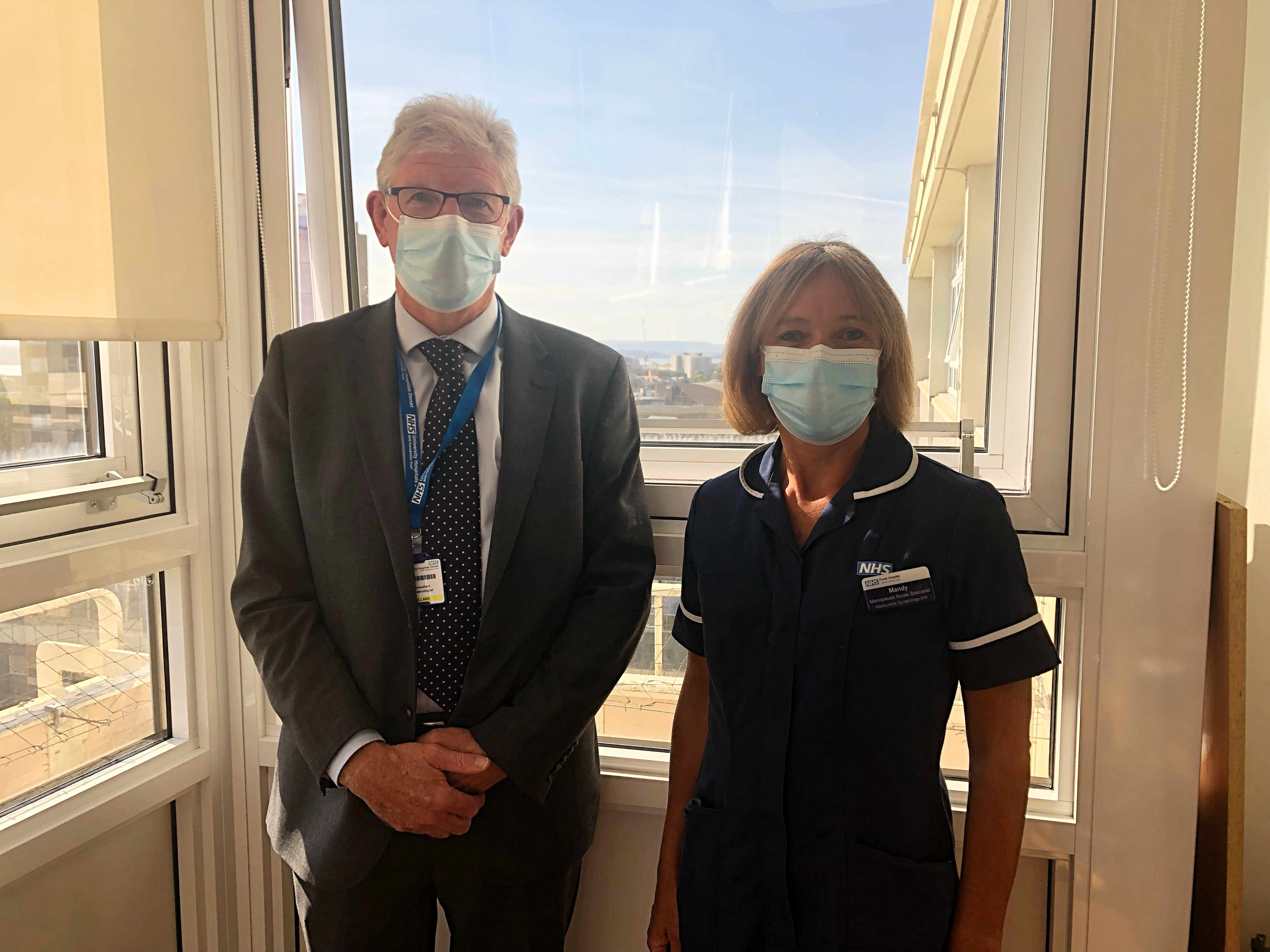Poole Hospital celebrates 25 years of specialist menopause service
“It’s brilliant that more women now have the confidence to speak up about the menopause and how it has affected them.”
So says Mr Tim Hillard, consultant gynaecologist and menopause specialist, looking back on 25 years of Poole Hospital’s specialist menopause clinic. The clinic was one of the first of its kind outside of London and remains the biggest menopause clinic in the south west. “We are proud we have been offering this service for so long as while primary care provides support for many women there has always been a need for specialist care for the more complex problems,” explains Mr Hillard.
Menopause affects all women, with one in three experiencing significant health problems associated with the symptoms of menopause.
“Dealing with menopausal symptoms can have a major impact on a woman’s quality of life, their ability to balance work and family, and can lead to feelings of distress and an inability to cope,” said Amanda Hillard, menopause nurse specialist. “I know of women who have had to leave their jobs as they have felt unable to cope or discuss the severity of their menopause symptoms with their employer”.
Menopause symptoms include hot flushes, night sweats, vaginal dryness, reduced sex drive, pain with sex, difficulty sleeping, low mood and anxiety, brain fog and reduced memory all of which can have a serious effect on a woman’s mental health. The average age of the menopause is around 52, but many women start experiencing their symptoms in their mid to late 40s. Some undergo their menopause much earlier which can affect fertility options and increase long-term health risks.
The team treats women who are experiencing debilitating menopausal symptoms that the standard treatments such as hormone replacement therapy (HRT) are not alleviating. They also help patients experiencing early menopause, those with more complex medical problems and those who cannot necessarily take HRT such as women who have had breast cancer.
Since being established 25 years ago the team has moved from St Mary’s Maternity Hospital to the Harbourside Gynaecology Unit and expanded to include consultant Miss Elizabeth Stephenson. The service is now busier than ever, with 16 menopause clinics running every month. Not only do the team treat menopause, but the clinic is the principle regional training centre for Wessex providing education to other healthcare professionals including practice nurses, GPs and trainee gynaecologists.
Alongside educating healthcare professionals Amanda emphasises the importance of wider education on menopause in the community: “We work exceptionally hard to educate women so that when menopause happens, they know what to expect and where they can get support. But it’s not just women who are close to the expected age of menopause that need to be educated, it is younger women, their partners, employers and their teams of staff.”
Mr Hillard advises women to speak up and seek advice if they have any concerns around the menopause: “I would advise any woman who is experiencing problems around the menopause, no matter what stage of life they are at, to seek help and advice. Quite often symptoms can be alleviated through simple changes such as dietary and lifestyle alterations but there are also a variety of treatment options available if needed.”
In the first instance women who need support with menopause can seek advice through their GP and practice nurses, but if they are having further difficulties a referral can be made to the menopause clinic. General menopause advice can also be found at www.womens-health-concern.org.uk and www.menopausematters.co.uk









